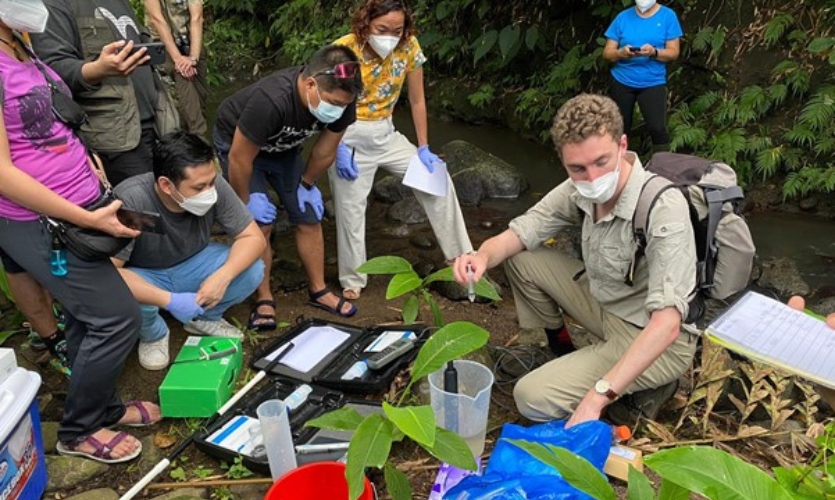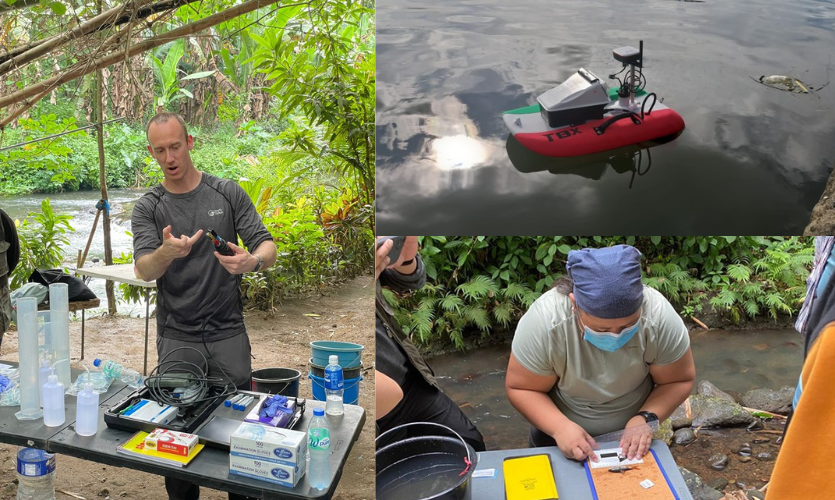Scientists deliver sustainable mining workshop in the Philippines

Dr Patrick Byrne and Dr Emma Biles from LJMU’s School of Biological and Environmental Sciences recently delivered a week-long sustainable mining workshop in the Philippines.
The workshop, hosted by University of the Philippines Los Baños, demonstrated a suite of novel environmental and ecological monitoring techniques for water environments, and was attended by mining professionals, government officials, scientists, and academics from across the country.
The Philippines is one of the most mineral rich nations in the world and is particularly wealthy in metals such as chromium, copper, nickel and cobalt, which are critical to the global net-zero transition.
These metals are key components of batteries and green technologies like solar panels, wind turbines and electric vehicles. However, no new mining activities have occurred in the Philippines for 10 years with heightened public concern over the ecological and human health impacts of future mining activities.
The workshop was delivered as part of project PAMANA (Filipino, meaning ‘legacy’ or ‘heritage’) funded by UK Natural Environmental Research Council (NERC) and the Philippine Department of Science and Technology.
 The PAMANA project is developing a new national-scale framework for monitoring and quantifying the environmental and ecological impacts of mining activities in the Philippines.
The PAMANA project is developing a new national-scale framework for monitoring and quantifying the environmental and ecological impacts of mining activities in the Philippines.
Experts at LJMU are involved in developing novel and technology-led approaches and embedding these within Philippine regulatory agencies. The goal is to help the Philippines to develop and expand their mining activities whilst protecting environments and ecosystems through new regulatory standards and monitoring approaches.
The workshop was the first step in the process of building capacity of Philippine researchers, government monitoring agencies, and mining companies to monitor and mitigate the environmental and social impacts of mining in the future.
Find out more about the PAMANA project.


